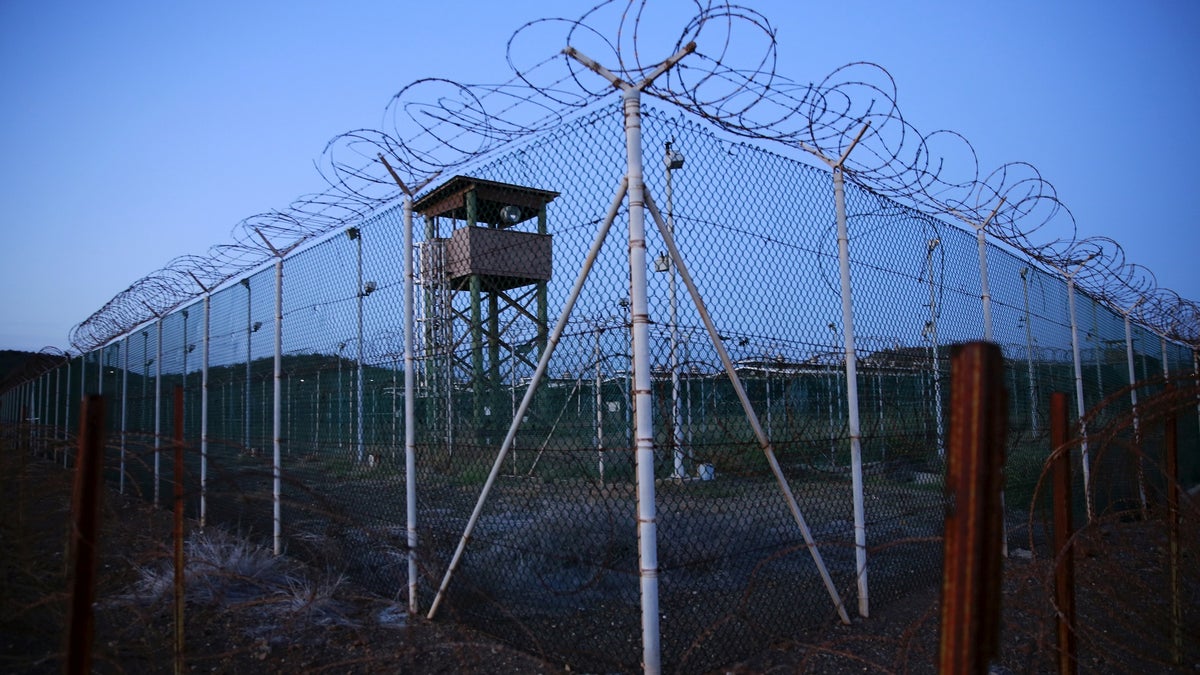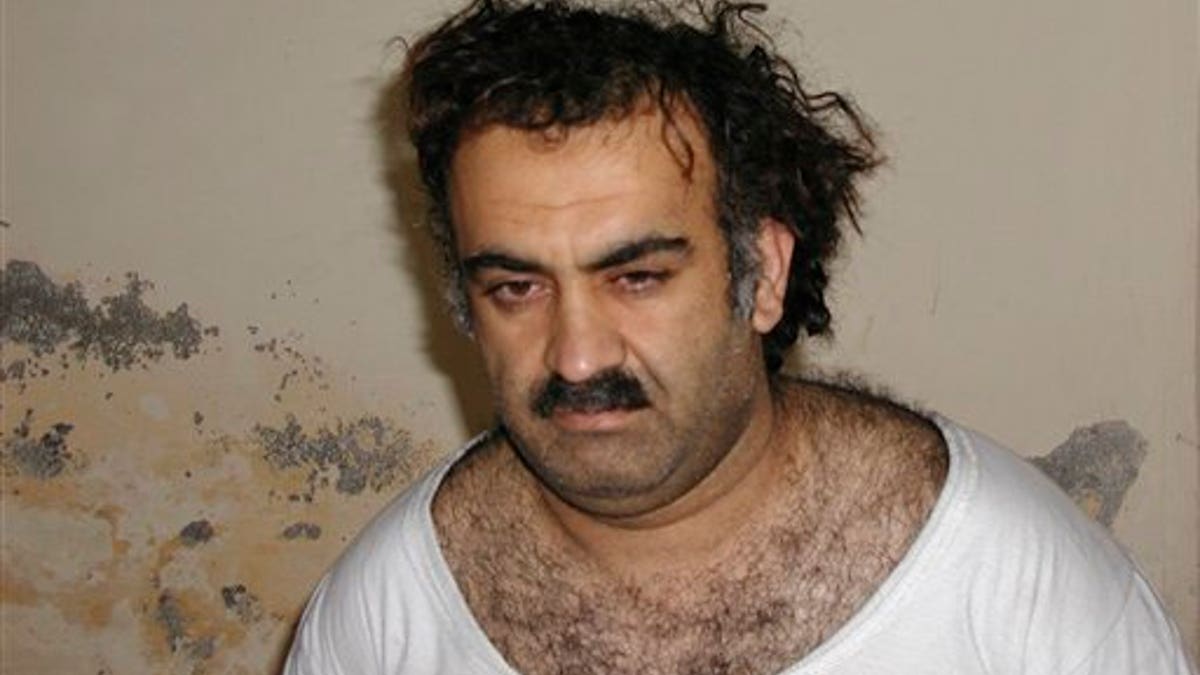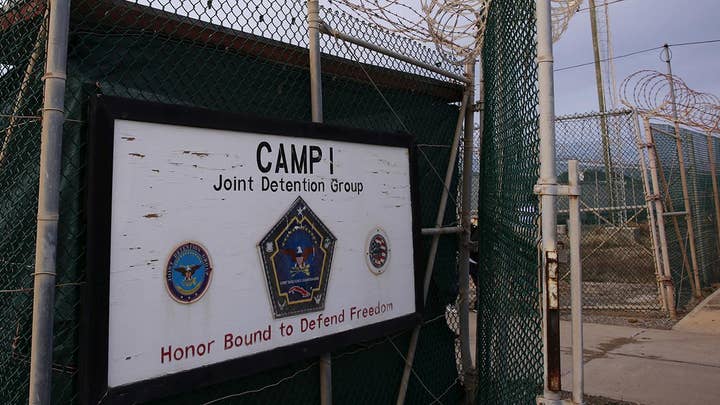
FILE PHOTO - Chain link fence and concertina wire surrounds a deserted guard tower within Joint Task Force Guantanamo's Camp Delta at the U.S. Naval Base in Guantanamo Bay, Cuba March 21, 2016. REUTERS/Lucas Jackson/File Photo TPX IMAGES OF THE DAY - S1AETVRIXQAA
The U.S. was already at war with Al Qaeda before hijacked planes hit the Twin Towers and Pentagon and crashed in Pennsylvania, a U.S. military judge presiding at the pretrial of alleged 9/11 attack plotter Khalid Sheik Mohammed and others ruled this week.
The landmark decision will pave the way for a trial of the accused 9/11 mastermind and four alleged abettors by military commissions at Guantanamo Bay, Cuba, the Miami Herald reported.
Lawyers for the alleged conspirators tried to convince the military commission that since the U.S. entered the war against Al Qaeda only after the Sept. 11, 2001, attacks, the defendants can face trial only in federal, civilian courts -- not before military commissions.

Khalid Sheik Mohammed, the alleged mastermind of the 9/11 attacks. (Associated Press)
A lawyer for Mustafa al Hawsawi -- a Saudi man accused of supporting at least seven of the 19 hijackers -- argued that his client allegedly helped some of the hijackers with funds and travel to the U.S. before the American government was at war with Al Qaeda.
Attorneys for another alleged conspirator, Ammar al Baluchi, claimed the war began when the U.S. invaded Afghanistan on Oct. 7, 2001.
Prosecutors argued the war between the U.S. and the terror group began with Usama bin Laden's 1996 "Declaration of Jihad Against the Americans,” according to the newspaper.
But the judge, Army Col. James L. Pohl, wrote in a 20-page ruling that it’s “unnecessary to decide a date certain for commencement of hostilities,” asserting that the U.S. was at war with Al Qaeda prior to 9/11, as two presidents have said in the past.
According to the ruling, President George W. Bush formed the military commissions to prosecute the culprits of the attacks, while President Barack Obama signed the Military Commissions Act of 2009 that "contemplates prosecution for offenses occurring 'on, before or after Sept. 11, 2001.’”
"The overall armed conflict against al-Qaida — a transnational terrorist organization operating primarily outside the United States — might itself be viewed as an anomaly under pre-Sept. 11, 2001, law of war standards," Pohl wrote.
"However, the law of war is not static, and its precise contours may shift to recognize the changing realities of warfare. Military commissions by their nature are intended to have sufficient flexibility to address the needs presented by the armed conflict they address."









































